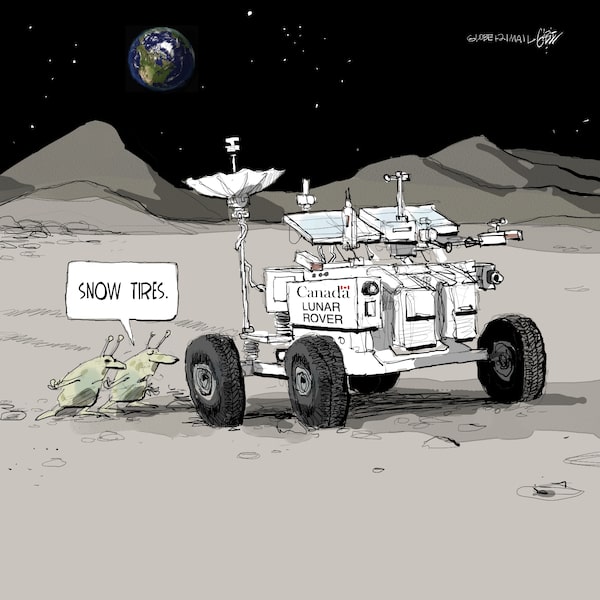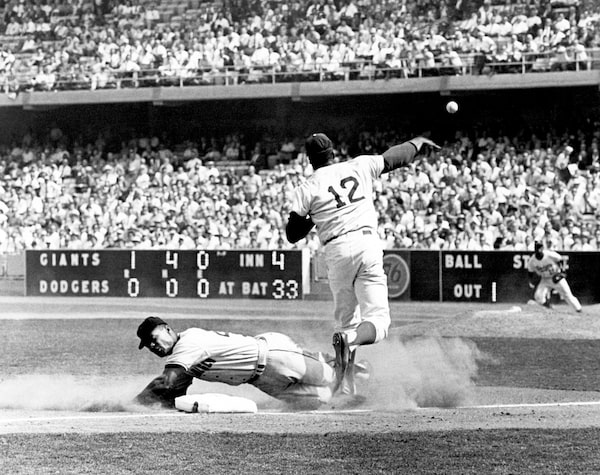Good morning,
Toronto’s York University and Queen’s University in Kingston have been collaborating with iFlytek, a partly state-owned Chinese enterprise specializing in voice recognition. The artificial-intelligence company has been blacklisted by the U.S. government for supplying surveillance equipment used against Muslim Uyghurs.
The $1.5-million in funding York received from iFlytek in 2015 was used to establish a new iFlytek Laboratory for Neural Computing and Machine Learning and a chair at the Lassonde School of Engineering, while Queen’s has used the $727,000 cheque it was given in 2019 to develop speech-learning models.
A York spokesperson defended the partnership but noted its funding agreement ended last year. Similarly, a representative from Queen’s said the university is “very mindful” of the questions raised about research collaboration with entities that have links to Beijing and noted the project is “essentially” over.
The two universities haven’t been the only ones under scrutiny in recent years for their ties with iFlytek. The Massachusetts Institute of Technology cut ties with the company in 2020 as human-rights concerns piled up.
People visit an iFlytek display booth at the Appliance and Electronics World Expo (AWE) in Shanghai, China March 23, 2021. REUTERS/Aly SongALY SONG/Reuters
Canadians mark 900 days in Chinese custody
Michael Kovrig and Michael Spavor are marking 900 days in prison today. The two Canadians remain in detention in China over allegations of espionage widely seen as retribution for Ottawa’s co-operation on the U.S.’s request to extradite Huawei executive Meng Wanzhou. Kovrig and Spavor are awaiting the verdict after the speedy, closed-door trials ended in March.
This is the daily Morning Update newsletter. If you’re reading this on the web, or it was forwarded to you from someone else, you can sign up for Morning Update and more than 20 more Globe newsletters on our newsletter signup page.
Canada stuck in ‘reactive mode’ in early days of pandemic
The data that countries were relying on to inform their response to the pandemic in its early days had a notable impact on the urgency with which they responded, according to Joanne Liu, the Canadian representative on a 13-member expert panel that examined the global pandemic response.
In Canada’s case, along with many of its wealthy peers, officials seized on metrics such as hospitalizations and deaths – both lagging indicators – to monitor the spread of the virus. Those that focused on leading indicators such as mass testing did a better job of managing the outbreak.
Opinion: The government’s data failures hurt us on PPE, and will again
Daily COVID-19 cases surge in Britain
Questions are mounting over the competency of Britain’s Health Secretary Matt Hancock, as the country comes to grips with rising case counts. The daily tally hit its highest level in six weeks, because of the spread of the variant first detected in India.
Herd immunity is proving elusive, even in countries such as Seychelles and the United Arab Emirates, where residents are eager to get the jab.
Ontario school reopening: Uncertainty over in-person return
Frustration is starting to set in for some parents, teachers and doctors over the uncertainty around the return to in-person learning with only a month left before the summer break. Ontario Premier Doug Ford is expected to make an announcement on whether students will return to the classroom by June 2, when the province’s stay-at-home order ends. He has appealed to experts to weigh in on the plan and said he wants “consensus” around how to move forward.
In today’s episode of The Decibel, Caroline Alphonso, The Globe’s education reporter, speaks with host Tamara Khandaker about the barriers children from different walks of life face, what educators know about how much students are falling behind on learning basic skills such as reading and how schools are trying to respond.
Got a news tip that you’d like us to look into? E-mail us at tips@globeandmail.com Need to share documents securely? Reach out via SecureDrop
ALSO ON OUR RADAR
Inquest turns to cause of Atikamekw woman’s death: Much of the world saw the footage Joyce Echaquan captured of hospital staff spewing racist remarks her way. But it was one-minute, 20-second private video that her daughter shot an hour later that really touched a nerve for Dr. Alain Vadeboncoeur, the expert ER doctor who testified yesterday.
Habs force Game 6: Toronto Maple Leafs’s hopes of staving off a return to the ice on Saturday were dashed after the Habs’s Nick Suzuki scored during overtime, ending the game 4-3.
Eastern European airspace becomes geopolitical checkerboard: New information surfaced yesterday that undermines Belarus’s claim that it forced the landing of the Ryanair jet carrying dissident journalist Roman Protasevich over a bomb threat. A Swiss e-mail provider said that the threat cited by Belarus was sent after the plane had already been diverted.
U.S. prosecutors open probe into whether Ukrainians interfered in 2020 vote: Federal prosecutors are looking into whether Ukrainian officials, both former and current, used Rudolph Giuliani, at the time the personal lawyer to Donald Trump, to spread misleading information about now-U.S. President Joe Biden during the election.
MORNING MARKETS
World stocks advance: Global stocks markets were on track for a fourth straight month of gains on Friday, as investors bet the United States will lead the world economy out of its COVID-19 slump with a US$6-trillion spending plan. Just before 6 a.m., Britain’s FTSE 100 was up 0.22 per cent. Germany’s DAX and France’s CAC 40 rose 0.55 per cent and 0.49 per cent, respectively. Japan’s Nikkei finished up 2.10 per cent. Hong Kong’s Hang Seng rose 0.04 per cent. Wall Street futures were higher. The Canadian dollar was trading at 82.65 US cents.
WHAT EVERYONE’S TALKING ABOUT
Jillian Horton, physician and writer: “You would think after that debacle that our Premier would have learned from his mistakes. But for the past several weeks, with our case counts rising and Canadian vaccine supplies bottlenecked, he has alternated between throwing tantrums and touring potato plants, insisting that the iceberg we are sailing toward is actually only a large collection of frozen water and suggesting that doctors only want lockdowns because they have never worked retail.”
Adam Radwanski: “With the climate fight often framed as one involving sacrifice – including by opponents of carbon pricing that will drive up heating costs for those still reliant on fossil fuels – the Liberals have pounced on an opportunity to actively reward people for helping reduce emissions.”
TODAY’S EDITORIAL CARTOON

Brian GableBrian Gable/The Globe and Mail
LIVING BETTER
Retail therapy: Bespoke tailor Maria Karimi launches her first ready-made collection
Montreal-based Maria Karimi’s made-to-measure garments have more than just one-of-a-kind style going for them, says writer Caitlin Agnew. Each ready-to-wear piece is crafted with sustainability in mind, from reducing waste to supporting a local community. With vaccinations picking up, and plans in motion to gradually ease restrictions, it may be time to ditch the sweatpants.
MOMENT IN TIME: May 28, 1957

Tommy Davis #12 of the Los Angeles Dodgers throws to first after stepping on the bag to get Felipe Alou #23 of the San Francisco Giants out during an MLB playoff game on Oct. 2, 1962, at Dodger Stadium in Los Angeles, Calif.Bruce Bennett Studios / Getty Images
Dodgers and Giants get the green light to move to California
By the mid-1950s, Major League Baseball knew it had to establish a foothold west of St. Louis if the sport was to grow and win larger TV audiences and revenue. And in New York, the two National League teams were restless. Walter O’Malley, owner of the Brooklyn Dodgers, needed a new stadium to replace dilapidated Ebbets Field. And Horace Stoneham, owner of the New York Giants, knew the Polo Grounds also needed replacing. And, further, Giants attendance had plummeted. (The powerhouse New York Yankees of the American League had no such problems.) O’Malley had been flirting with Tinseltown for a few years, but knew he couldn’t move there alone. So he convinced Stoneham to move west with him. On this day in 1957, the National League agreed to let the Dodgers (affectionately known as Da Bums) and the Giants relocate to California, starting the following season, on the condition that either both teams moved or neither. The Dodgers landed in Los Angeles, where a fresh and growing marketplace gave O’Malley control of all revenue streams. The Giants went to San Francisco, where they would also prosper. The two rivals, once separated by a subway ride, ended up 600 kilometres apart. Philip King
Read today's horoscopes. Enjoy today's puzzles.
If you’d like to receive this newsletter by e-mail every weekday morning, go here to sign up. If you have any feedback, send us a note.